Quique Setien: The manager who battered Barcelona and whose Real Betis team you can't miss
A combination of Pep Guardiola's purist philosophy and Maurizio Sarri's journey, having come through the lower leagues, Setien is the man behind some of Spain's most exciting football, writes Miguel Delaney

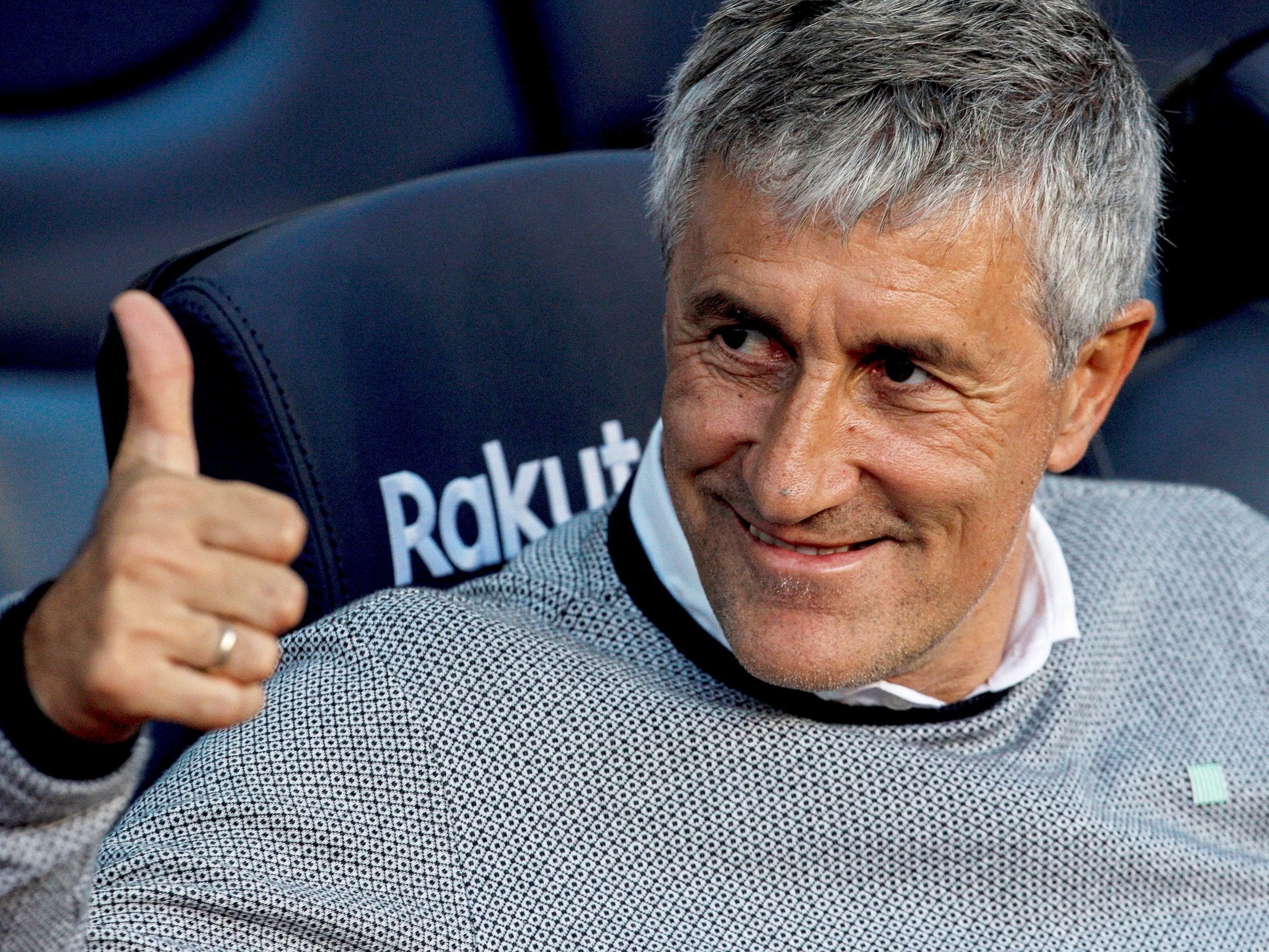
Quique Setien speaks with the vigour of a true believer, as he declares a commonly-made argument “absolutely false”. It’s put to the Real Betis manager that there is a regularly repeated view - particularly around the Premier League - that it’s an inherent risk to try and play expansive football with lesser-resourced clubs. That Pep Guardiola would struggle to impose his style on squads that didn’t have some of the most talented players on the planet.
“That’s not true,” Setien argues. “That is a falsity. Nobody can say you can’t play a particular way.”
Setien and his team are the profoundly entertaining proof of that. Betis so thrillingly beat Barcelona 4-3 last weekend in a landmark away win that has only furthered the talk the 60-year-old will next be at Camp Nou as home manager, and only further proved something else that is now rather commonly said in Spain: that you “should always, always watch Betis”; that there’ll always be an exhibition; that they might just be the best team to watch in Europe right now. That they're unmissable.
It is something a Spanish employee of a Bournemouth hotel actually said in passing to Setien as the Betis boss sat down for this interview back in August, and it's something that prides him more than anything. It is what he is in the job for.
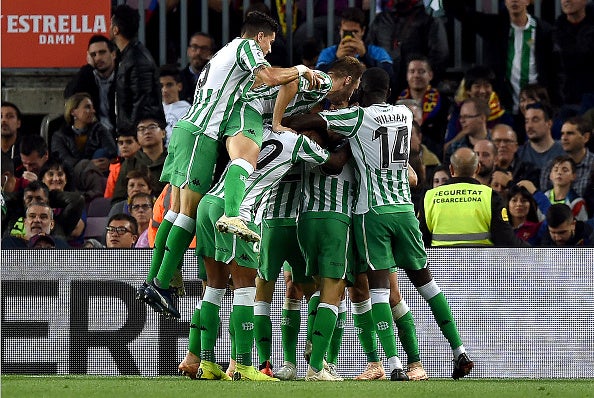
“People have said it even on days we lost, meaning it stays with them. And, wow, that’s the satisfaction of the job.”
That is also quite a leap for a club that had for most of the last two decades been seen internationally as no more than Seville’s middling second club, only really remembered for the extreme waste of the 1997 world-record signing of Denilson.
No more, and that is testament to the progressive work and vision of Setien, as well the impressive structural transformation of a club that made the 60-year-old such an obvious choice as manager.
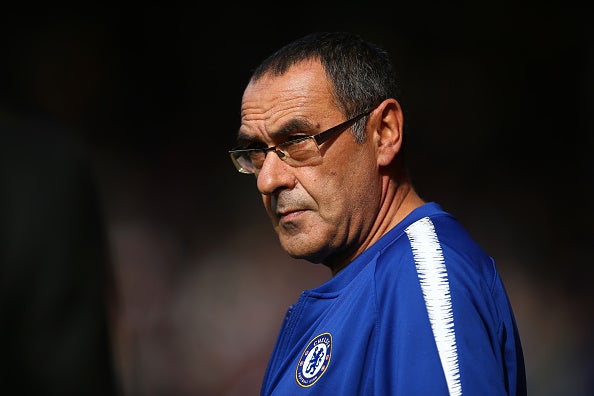
There are some clear parallels with Chelsea’s Maurizio Sarri, given Setien’s Guardiola-aligned purist philosophy and impressive success relatively late in his career, having spent so many years in his country's lower leagues. The latter and the purism are inherently connected, as Setien saw himself as a coach in the truest sense of the word, actually improving players and only ever looking to work that way. It is why he stayed at Lugo for six years, taking them up to the second division, and thereby eviscerating that same argument about Guardiola.
Because, say what you like about him being the next Barca manager or the next Sarri, Setien is very much his own man.
“When I arrived at Lugo, the whole world told me you can’t play that football in Segunda B. I said we could, and was there six years. We got promoted, playing the football Betis play now. I have a motto, that I will never change my way of seeing things… sometimes, how I feel about football, it doesn’t matter if a team wins or loses. What attracts me to a match is whether the teams play well, that there are footballers, that it goes beyond the result.
“I’m a romantic, I like the football.
"I’m a spectator, and I don’t buy a ticket to watch a team stay stuck in their half waiting for a 0-0 or a counter-attack.”
He says he “didn’t have much interest in looking at France on television” at the World Cup, and preferred the self-enhancing teamwork of Japan - featuring Betis’ own terrific Takashi Inui.
“When I played, I was like that. I wanted the ball, to pass it, to get it to feet. It was something I always said when I played in teams that were dedicated to long balls and second balls.
“If you play badly and lose, you’re left with nothing. If you lose but play well, you still have something. You have something to build on.”
The key question, though, is how you actually put it in place. Thinking that way and talking about it, after all, represent one side. Properly applying it so it is successful enough to appeal to people is something else.
It is one of the game’s great challenges, and why it has led to this great debate.
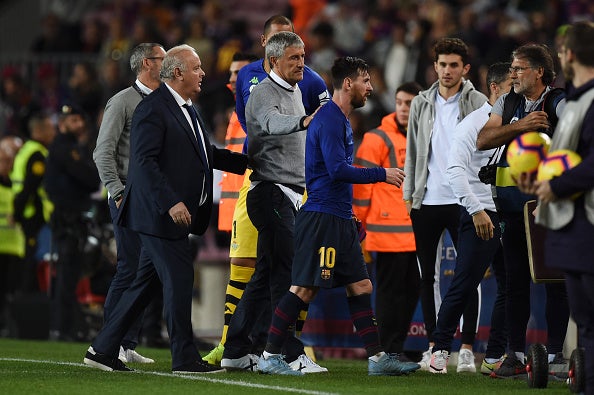
Setien’s compelling answer however shows there is a practicality to his purism. A former central midfielder from Santander who was selected for Spain’s 1986 World Cup squad, he is engaging company who can so immerse himself in ideas that he ends up going on tangents on how Leo Messi is one of the purest players who ever lived, before humorously talking about playing chess against Garry Kasparov and then setting up chances that the grandmaster missed in an exhibition match.
Setien is always fascinating, though, and one of those figures who can change your thinking on football.
He first of all believes the entire debate about whether you can play certain styles with certain teams is the wrong way around.
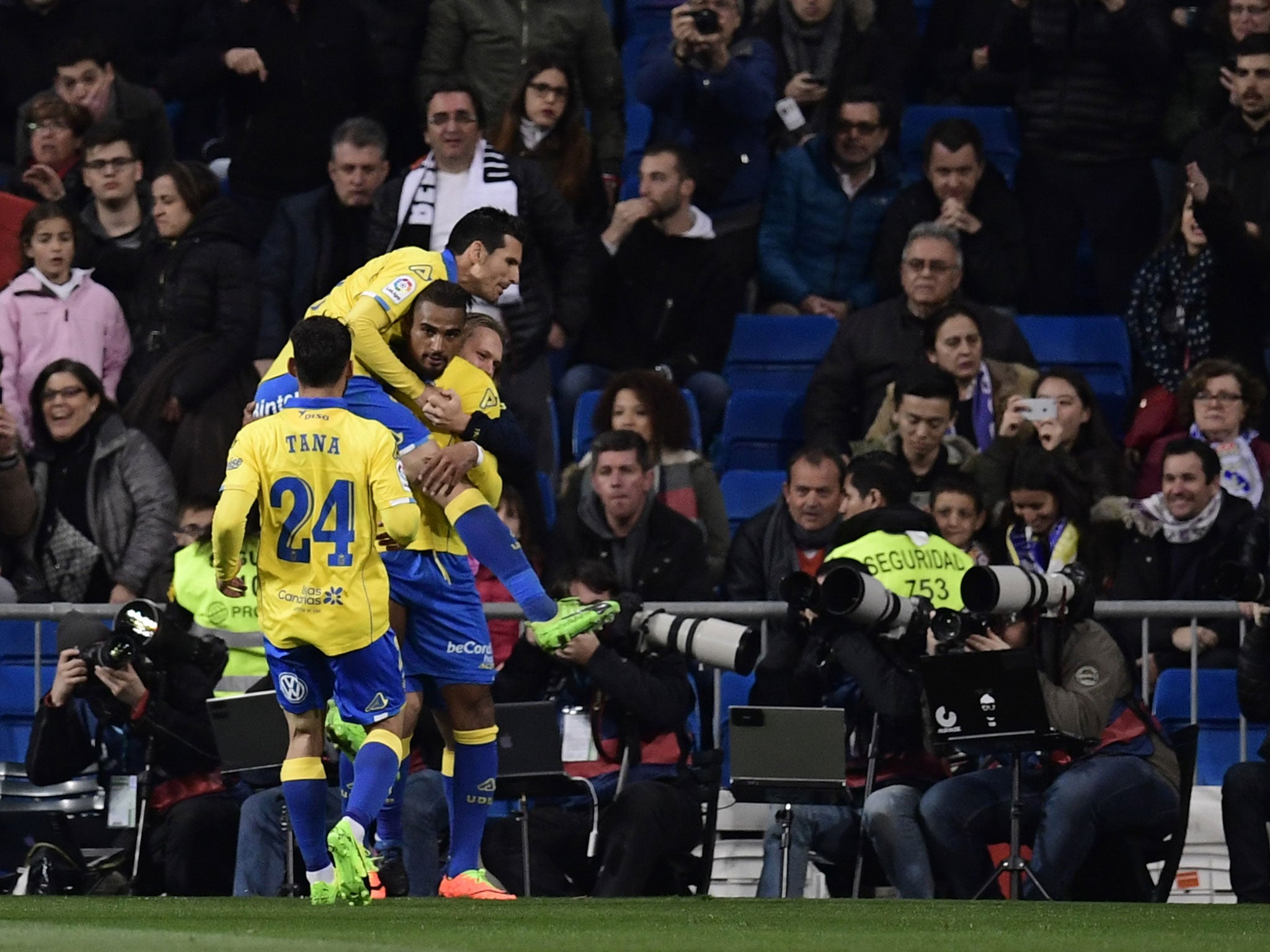
“Style is not the problem. It’s about doing things well. Because what happens when you defend for 90 minutes and still lose? It seems, with that, you never have to justify anything. Every style can lose. What you have to do is make sure your players understand your idea, and execute it well.”
So how? How do you do this? How do you achieve what Setien has at Lugo, Las Palmas and now Betis?
He actually starts any job with a question, and a statement, the first to his bosses and the second to his squad.
“Before I signed for Betis, I asked them ‘why do you want me? You’ve seen how my teams played, how I play. Are you clear this is what you want? Are you convinced this is what your president, your sporting director, the officials want? You agree with this or not, because be clear that I’m not going to change. If not, you’d better get another manager.’ This is what I understand, this is how I play. My teams are going to come out from the back, involve the goalkeeper, and create.
“Whatever happens happens, but first you have to know that.
“It’s like if tomorrow you appoint [Jose] Mourinho. You know how he’s going to play, you can’t now pretend he’s going to take the ball out from the back… too many clubs change the manager and style too easily, and it’s impossible to create anything for the future. That’s what happened at Betis, Valencia, so many times. Every time a new manager comes in, new players come in. It’s a tremendous economic waste, and when you impose something you have to give space and time.
“When I arrive at a club, I always look at it like I’m going to stay all my life. I couldn’t work like I do otherwise.”
It’s certainly persuasive, but the crucial next step is then persuading the players. That involves a proclamation rather than a question because it’s about firing that belief.
“First of all, I tell them they’re going to enjoy themselves much, much more. I’ve said it many times. When you went out to play football as a kid, no matter how good or bad you were, what you loved was having the ball, touching the ball.
“That’s the key.
“And when you tell the players your ideas mean they will have the ball for 70 minutes of the 90, their faces change; their outlook changes. Above all the players that have a certain technical quality, as they immediately connect to this idea and start offering more of themselves. If you emphasise this, everything is easier.
“I always say to my players that to win should be the consequence of doing things well. OK, one or two days you’ll lose but what’s very important is that the players understand what you’re trying. They have to understand that what we’re doing is going to give the team much more than it’s going to take away from the team.
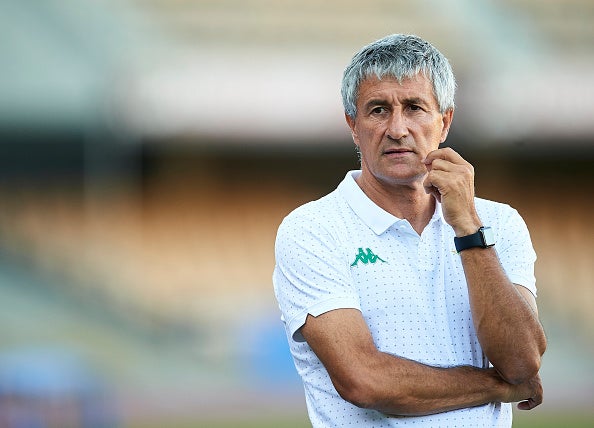
“Because when you put something in place, you have to be confident in it and transmit that to the players.
“With the goalkeepers playing the ball, say, from the first moment I arrive, I say all I’m going to ask is that you have the will to try it. I’m going to put in place in the mechanisms in front so it’s not as high but if you mess up, it’s not your fault, it’s mine, because I’m asking you to do something.
“And that level of confidence is what every player has to have, to then give the ball to a teammate.
“If you throw footballers to the lions and later don’t protect them if they get something wrong, they’re never going to give you what you want. This is something that has to be clear from the start.
“So we want to play the ball out from the back. We put the structures in place for it, explain it, watch the videos, study the opposition. Later, once we’ve perfected that first phase, you start on the process of creation further forward. You have mechanisms for this, coordination, connection between the players.”
That is convincingly seen in moves that saw William Carvalho cut open the Barcelona defence for Junior Firpo to finish for their first on Sunday, or Sergio Canales cutting through them for their fourth, not to mention the assurance of Marc Bartra in starting it all from the back.
The fact that match ended a nervous but exciting 4-3 only adds to the entertainment, while also reflecting that relevant inherent risk to how Setien plays - but he insists it is a calculated risk.
“For me, it’s always come off well,” he says. “I’m here with my balls on the line, like they say, because it’s true I leave space in behind when we attack. The opposition can take advantage of that but, for me, to create danger, to have the ball, to play, to play high, it’s much more enjoyable. It makes everything easier. And when your main objective is to defend, the opposition will create more chances. That has its own risks.
“We have the control we want, and that allows something else. Our team is very consistent in its level of performance.”
But given how Betis play, and how they aren’t technically of Barcelona’s level, how do you successfully combine collective team moves with individual expression? How much freedom can he give any player? Setien’s answer sums up so much about his entire attitude to football.
“There’s only one player I’ve known that has the ability to really decide games on his own, and play wherever. That’s Messi. When you have a footballer like that, who can do it on his own, there’s nothing to say. The other 10 are going to say ‘let him do what he wants, he’s going to make us better, and we’ll win more matches.’ But there’s only one. Everyone else has a role, has to maintain the structure. And if you have a player who keeps drifting outside the system, you have to remove him. No matter how good he is. If you win games on your own, fine, but since you don’t, you make me lose balance. And balance is essential - above anything.”
Setien is asked whether the balance of the league has been changed by the departure of Cristiano Ronaldo… only to rhapsodise again about Messi.
“Cristiano Ronaldo, within his characteristics as a player, has been a revelation. He’s marked an era in Spanish football, so many goals, so many triumphs for his team and has been an important player. But others appear.
“For me, really, the one I would lament losing greatly would be Messi. He brings together everything I love about football. He’s pure. He’s not only one thing. He’s everything. I think it would be a tragedy to lose him, but just like we lost [Diego] Maradona in his moment, like we lost [Johan] Cruyff… footballers who have thrilled me to sit down in front of the TV to watch them.”
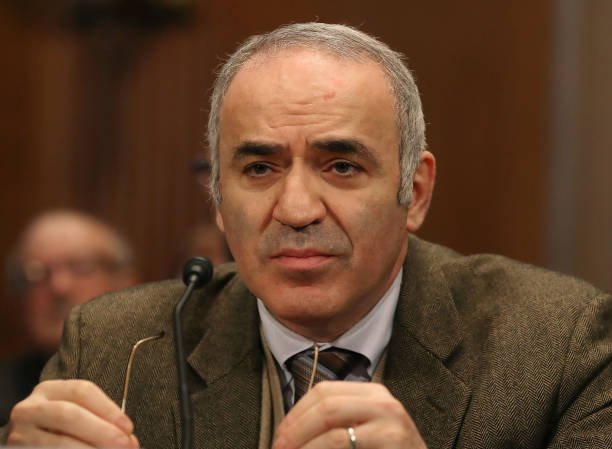
It’s easy to see how Setien is so enamoured with chess, and how the Spanish media make so much of how that informs his football insights - and that he’s played against Kasparov.
“It’s true. At Atletico Madrid, they rang me one day to say Kasparov was in town for one those exhibitions playing simultaneous games, since I love chess. But he also loves football, and first there was a match. They’d put us against each other in the first half, and at half-time he asked if I could play on his team! So I changed shirt, began to get the ball, dribble, and played it back to Kasparov to score. He hit it over, wide, at the goalkeeper!
“Playing chess against him was a great experience. I still play against our president too, although we’re both very bad. At least that makes it fun, as we’re the same level It helps me relax and disconnect, and forget about football.”
You can’t imagine that ever lasts long, and Setien is certainly creating memorable football. That’s the effect that true belief, and full commitment, can have.
Join our commenting forum
Join thought-provoking conversations, follow other Independent readers and see their replies
Comments